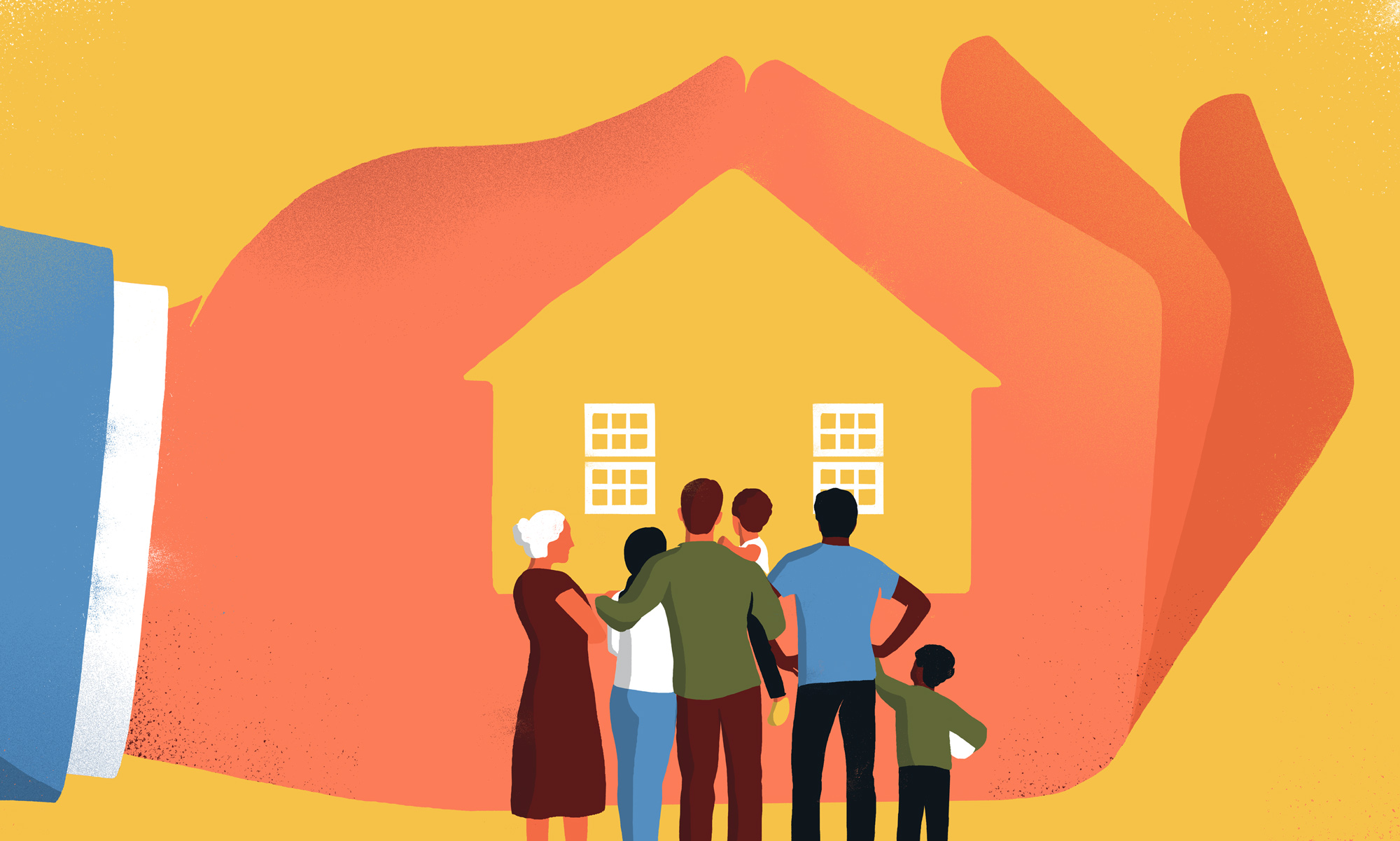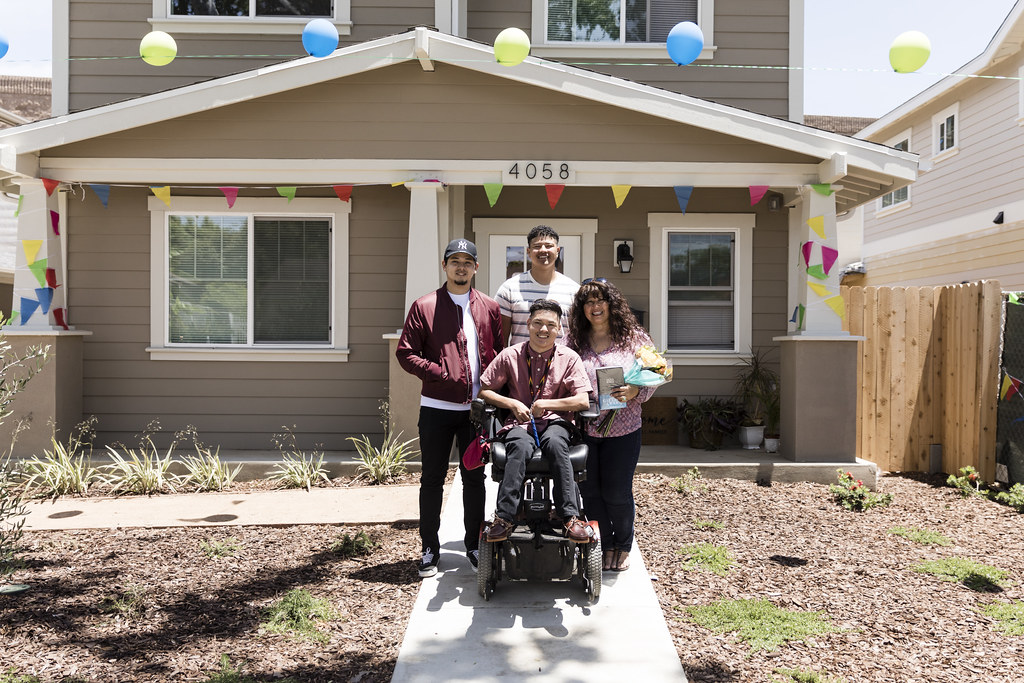Strategies for Attaining Affordable Homeownership with a Tight Budget
Strategies for Attaining Affordable Homeownership with a Tight Budget
Blog Article
Inexpensive Homeownership Options for First-Time Homebuyers
As the real estate market proceeds to progress, novice homebuyers face one-of-a-kind challenges in protecting affordable homeownership alternatives. Various sources, consisting of entitlement program programs, low-down-payment home mortgages, and targeted grants, have arised to alleviate economic pressures. These efforts not just promote homeownership yet additionally foster area stability and financial growth. Browsing these alternatives can be intricate, and understanding which paths are most advantageous needs careful consideration. What methods can potential homeowners utilize to maximize their chances in this landscape?
Federal Government Support Programs
Federal government support programs play an important duty in making homeownership attainable for many individuals and households. These programs intend to relieve the monetary burden connected with purchasing a home, especially for first-time buyers. By offering financial assistance, gives, and tax incentives, federal government initiatives assist bridge the space between rising housing prices and the buying power of prospective home owners.
Different programs are readily available at the federal, state, and neighborhood degrees. For example, the Federal Housing Administration (FHA) supplies insurance on finances, permitting lending institutions to supply a lot more beneficial terms, such as lower deposits and reduced rates of interest. In addition, state and city governments often have their own campaigns, which may include deposit assistance programs, property buyer education training courses, and desirable home loan terms.
These programs are designed to address the unique obstacles faced by low- to moderate-income family members, consisting of limited financial savings and credit rating. By fostering a setting where homeownership is more obtainable, federal government assistance programs not only sustain private ambitions however additionally add to area stability and financial growth. Comprehending and utilizing these resources can substantially improve the leads of successful homeownership.
Low-Down-Payment Home Mortgages
For numerous hopeful property owners, low-down-payment home loans provide a viable pathway to homeownership, especially in today's tough real estate market. These home loan options usually require deposits ranging from 3% to 5%, making it less complicated for novice buyers to go into the market without the concern of saving for a substantial deposit.
Various lending institutions use low-down-payment programs, including conventional loans backed by Fannie Mae and Freddie Mac, along with government-backed choices like FHA financings. These home mortgages are made to fit people with minimal cost savings while still offering affordable rate of interest. Significantly, they allow customers to maintain even more cash for various other crucial expenditures, such as moving costs, home inspections, and possible restorations.
Nevertheless, prospective home owners should bear in mind the trade-offs related to low-down-payment home loans. A smaller down payment might result in higher regular monthly settlements and the requirement of private home mortgage insurance coverage (PMI), which secures lenders in situation of default. For that reason, it is crucial for first-time purchasers to carry out extensive research study and speak with mortgage professionals, guaranteeing they pick a low-down-payment alternative that straightens with their long-term financial objectives. Affordable Homeownership.
First-Time Homebuyer Grants
Many first-time homebuyers discover that gives Full Article can considerably relieve the monetary problem of acquiring a home, enhancing low-down-payment home loan options. These gives, frequently supplied by state and city governments or non-profit companies, use monetary aid that does not need repayment, making them an appealing alternative for those entering the housing market.
Qualification for novice homebuyer gives usually relies on income, creditworthiness, and the purchase cost of the home. Numerous programs are created to help reduced- to moderate-income families, making sure that support gets to those who require it most. The application process commonly includes documentation of economic standing, buyer education and learning training courses, and sometimes even a commitment to remain in the home for a certain period.
The quantity of aid varies extensively, with some gives giving a number of thousand dollars to assist cover shutting expenses or down repayments. Researching offered gives in your area is essential, as programs regularly change and may Continued have specific requirements. By leveraging these funds, novice property buyers can make homeownership a lot more obtainable, ultimately achieving their desire of possessing a home while mitigating the initial financial pressure.
Innovative Community Campaigns
Innovative community campaigns are playing an important function in broadening affordable homeownership options for residents. These campaigns typically entail collaborative initiatives between city governments, charitable companies, and economic sector stakeholders to create lasting real estate options tailored to community requirements.
One notable approach is the facility of neighborhood land depends on (CLTs), which enable homeowners to acquire homes while the land remains had by the trust fund. This model aids keep price over time and avoids speculative cost boosts. Additionally, CLTs commonly supply instructional resources and assistance services to encourage new buyers.
One more efficient initiative is the development of mixed-income housing projects, which mix budget-friendly units with market-rate homes. This strategy cultivates comprehensive communities and reduces the stigma commonly connected with low-income housing. Furthermore, city governments are increasingly sustaining zoning reforms to promote the building and construction of accessory house systems (ADUs), which can provide extra rental earnings for home owners while enhancing housing schedule.

Tips for Budgeting and Saving

Following, establish a specialized interest-bearing account especially for your future home acquisition. Goal to conserve a percent of your income consistently, ideally 20% or more, to build a substantial deposit. Make use of automation tools, such as straight down payment or automated transfers, to make conserving less complicated and much more consistent.
In addition, consider taking on the 50/30/20 guideline: allocate 50% of your revenue to needs, 30% to desires, and 20% to financial savings and financial debt payment - Affordable Homeownership. This approach promotes balanced financial health and wellness

Verdict
In summary, inexpensive homeownership options for first-time homebuyers incorporate various resources such as entitlement program programs, low-down-payment home mortgages, and grants. These initiatives not only facilitate access right into the real estate market however additionally promote area security and financial growth. By leveraging these economic devices, individuals can navigate the complexities of homeownership, ultimately adding to an extra equitable real estate landscape. Proceeded assistance and recognition of these programs are essential for boosting accessibility to homeownership possibilities.
As the real estate market proceeds to develop, first-time buyers deal with distinct challenges in safeguarding inexpensive homeownership alternatives. By fostering an atmosphere where homeownership is extra available, government assistance programs not just support private goals but likewise add to area security and economic growth. By leveraging these financial resources, novice buyers can make homeownership extra available, ultimately attaining their desire of owning a home while minimizing the first monetary strain.
In summary, economical homeownership options for first-time homebuyers incorporate different resources such as federal government assistance programs, low-down-payment mortgages, and gives. By leveraging these monetary tools, individuals can navigate the complexities of homeownership, eventually contributing to a more equitable housing landscape.
Report this page